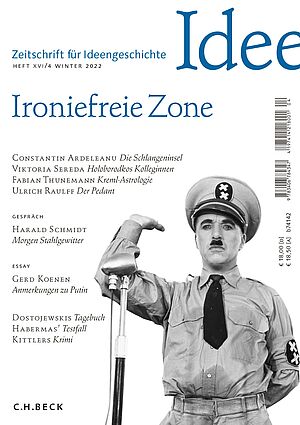
Viktoriya Sereda, Dr.
Associate Professor of Sociology
Ukrainian Catholic University, Lviv
Born in 1974 in Lviv, Ukraine
Studied History at Ivan Franko National University of Lviv and Sociology at Eötvös Loránd University, Budapest, the University of Edinburgh, and the National Academy of Sciences of Ukraine
Project
Time and Space in Local Perspective: Identity and (Trans)National, Regional, and Local Representations of the Past
My project aims at changing the focus from macro-level research on the national/regional official models of the past and the politics of memory to the local perspective. I believe that such macro-level generalizations tend to stress cross-regional differences or "exotic" cases and tell us little about the way people understand the historical past and use it in the process of living.I focus on the local as an interesting conceptual framework to study the interplay between (trans-)national, regional, and local models of the past and their impact on inhabitants' historical identities. National or regional identities are built more on an "imagined community" principle and, as a result, require a greater level of generalization and consistency of markers. Within a society, they function more in the form of competing discourses/projects produced by elites, which people later internalize (or question).
Local identities do not require a broader generalization, therefore their markers may often remain fragmented, unclear, and contradictory. Focusing on the local gives us a more nuanced perspective, but it requires different theoretical and methodological approaches (shaped more toward micro-social analysis).
I will study the case of Ukrainian small towns in the period of 2012-2016. Recently, socio-cultural transformations in Ukraine attracted the attention of many scholars due to the events of political protest (2004 and 2013/14). I will analyze a rich store data (sociological surveys and in-depth interviews) collected a few months before the 2013/2014 Euromaidan, during the protests, and in their aftermath. This will allow me to bring into my project a comparative perspective and to examine the local dimension of the ongoing changes in Ukraine.
Recommended Reading
Sereda, Viktoriya. "Rethinking Ukrainian identification space: Civic activism in Ukraine after the Euromaidan" (in Ukrainian). In Fenomen Maidanu v ukrainskomu suspilstvi: sotsiolohichni interpretatsii, edited by E. Holovakha and O. Stehnii, 58-78. Kyiv, 2014.
-. "The Changing Symbolic Landscape of Lviv". In Politics, History and Collective Memory in East Central Europe, edited by Zdzislaw Krasnodebski, Stefan Garsztecki, and Rüdiger Ritter, 359-386. Hamburg: Krämer, 2012.
-. "Regional Historical Identities and Memory" (in Ukrainian). In Ukraina Moderna (2007): 160-209. Special issue: Lviv-Donetsk: sotsialni identychnosti v suchasnii Ukraini.
Colloquium, 24.04.2018
National, Local and Displaced: Identities and Memories in Ukraine After the Euromaidan
This presentation aims at making a contribution to the wider debate on identity and belonging by applying an "everyday nationalism" approach to the analysis of a re-articulation of identity and historical memory in Ukraine in wake of the Euromaidan movement. The mass protests, Russian annexation of Crimea, and the ensuing conflict over Donbas have resulted in an intensive reimagining of the past and its symbolic markers as well as in a growing public and scholarly interest (both from inside and outside the country) in those contested spaces where identities still clash.
As sociological generalizations of the macro-regional divides tend to essentialize ethno-linguistic cleavages in Ukraine, in my current research project I look beyond nationally or regionally focused schemata to highlight those local and individual dimensions of memory and identity which reveal how people negotiate their sense of belonging under changing political circumstances. In my presentation I will discuss several case studies, based on in-depth interviews, which show the specific interplay between national, regional and local representations of the past and just how they inform a re-articulation of identities.
First, I analyze newly emergent local sites of memory where memorials devoted to the heroes/victims of recent conflicts in Ukraine have replaced those Soviet-era monuments which were destroyed under the Ukrainian "Decommunization Laws". In particular, I examine the reception of highly contested changes to the symbolic landscapes of Ukrainian cities/towns/villages as well as the reactions to the new commemorative practices in different parts of the country.
And another topic: The Crimean and Donbas refugees ("internally displaced persons" or IDPs in official terminology) amount to a total of some two millions persons. An analysis of their diverse experiences can help to uncover mechanisms that (re)produce everyday hierarchies of belonging, while more specifically revealing the internalization of conflicting national frameworks. It was in reformulating the meaning of old and new routines and symbolic practices, including those connected to historical memory (along with the resulting self-identifications) that the IDPs experienced situations which might be conceptualized as "breaking the framework", as it were. This has led to both a reassertion of Ukrainian national identity and an increasing sense of political and cultural disorientation.
Publications from the Fellow Library
Sereda, Viktoriya (Cambridge, 2025)
Sereda, Viktoriya (Bielefeld, 2025)
War, migration, memory : perspectives on Russia's war against Ukraine Forum transregionale Studien - Dossiers ; volume 4
Sereda, Viktoriya (Leiden, 2024)
Sereda, Viktoriya (New York, 2024)
National minorities in Ukraine : contextualizing challenges and searching for policy solutions
Sereda, Viktoriya (Budapest, 2023)
Sereda, Viktoriya (Budapest, 2023)
Sereda, Viktoriya (Amsterdam [u.a.], 2023)
Feminized forced migration : Ukrainian war refugees
Sereda, Viktoriya (Cambridge, 2023)
Displacement in war-torn Ukraine : state, displacement and belonging Cambridge elements
Sereda, Viktoriya (New York, NY, 2020)
Sereda, Viktoriya (Paris, 2018)
Made at Wiko 03/18/20
Köpfe und Ideen 2018
A Plea for more Cultural Sensitivity
a portrait of Viktoriya Sereda by Katja Gelinsky



